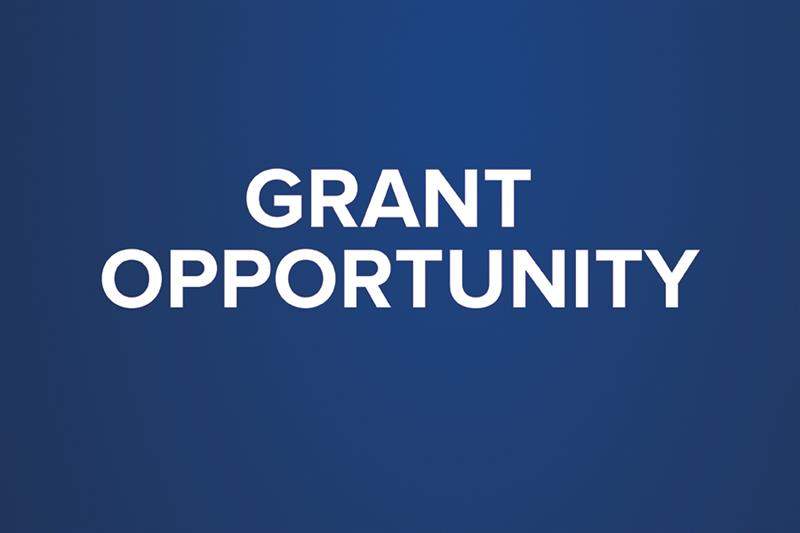Grants to Optimize Long-Term Mental Health Outcomes
Deadline: 9-Dec-21
The National Institutes of Health (NIH) has announced the applications for Effectiveness and Implementation Research for Post-Acute Interventions to Optimize Long-Term Mental Health Outcomes.
This FOA seeks research applications for effectiveness and implementation science on the post-acute (long-term or chronic) management of mental health conditions. This funding opportunity aims to advance the development of novel and innovative implementation research to improve the availability and accessibility of post-acute services in low- and middle-income countries (LMICs) and low resource settings.
This FOA aims to support developmental research projects to assess the effectiveness and implementation of therapeutic and services interventions for the post-acute phase management of mental health conditions affecting children, youth, adults, and older adults in LMICs. All applications are also expected to generate new information concerning the structure of the health system and changes that may be necessary to facilitate the dissemination (scaling-up and sustainability) of such interventions. Pilot clinical trial studies may assess such facilitators and barriers whereas non-clinical trial studies may derive these from secondary data. The potential for reciprocal learning will be considered an added value.
Examples of relevant research topics include but are not limited to:
The design and testing of feasibility and acceptability of innovative implementation studies of outpatient or community evidence-based pharmacological and psychosocial interventions for the sustained post-acute care of common mental disorders or serious mental illnesses
The role of interventions to address social determinants of health (including but not limited to housing, healthy food, water, education, and employment) as a component of psychosocial interventions for post-acute care
The identification of underlying targets/mechanisms that can aid in the understanding of causal pathways between post-acute service utilization and mental health functioning.
The planning and pilot testing of efficacy, effectiveness, and implementation studies of pharmacological and/or psychosocial evidence-based interventions for adults or children in humanitarian settings.
The assessment of the availability and test the use of routinely collected data within healthcare networks/EHRs to examine population-level strategies for monitoring, prompting engagement (e.g., care manager check-ins), and promoting appropriate mental health service use for post-acute care.
The development and testing of innovative strategies or interventions for initiating preventive interventions among children and youth treated for “gateway conditions” (e.g., ADHD, trauma-disorders, anxiety, first-episode psychosis) in order to reduce the risk for common downstream comorbidities (e.g., substance use disorders, suicidality, depression).
Investigations to study adaptations of successful implementation of effective interventions for the sustained post-acute care and community reintegration of people with common mental disorders to LMIC environments including assessment of feasibility and acceptability.
The exploration of technology-assisted self-monitoring or passive monitoring to detect clinical deteriorations or problematic adherence combined with prompts for self-management strategies or more intense services (e.g., via a patient-clinician/care provider interface or portal);
The development and pilot testing empirically informed transition planning strategies to facilitate community reintegration, promote continuity of care, and prevent re-hospitalization following inpatient or residential treatment.
Pilot studies to maximize coordination, partnerships, and effective communication between hospital and outpatient-based care systems on post-acute monitoring, interventions, and services.
Funding Information
National Institute of Mental Health (NIMH) intends to commit $2,500,000 in FY 2022 to fund up to 7 awards.
Direct costs are limited to $450,000 over the R34 project period, with no more than $225,000 in direct costs allowed in any single year.
The total project period for an application submitted in response to this funding opportunity may not exceed 3 years.
Eligibility Criteria
Higher Education Institutions
Public/State Controlled Institutions of Higher Education
Private Institutions of Higher Education
The following types of Higher Education Institutions are always encouraged to apply for NIH support as Public or Private Institutions of Higher Education:
Hispanic-serving Institutions
Historically Black Colleges and Universities (HBCUs)
Tribally Controlled Colleges and Universities (TCCUs)
Alaska Native and Native Hawaiian Serving Institutions
Asian American Native American Pacific Islander Serving Institutions (AANAPISIs)
Nonprofits Other Than Institutions of Higher Education
Nonprofits with 501(c)(3) IRS Status (Other than Institutions of Higher Education)
Nonprofits without 501(c)(3) IRS Status (Other than Institutions of Higher Education)
For-Profit Organizations
Small Businesses
For-Profit Organizations (Other than Small Businesses)
Local Governments
State Governments
County Governments
City or Township Governments
Special District Governments
Indian/Native American Tribal Governments (Federally Recognized)
Indian/Native American Tribal Governments (Other than Federally Recognized)
Federal Government
Eligible Agencies of the Federal Government
U.S. Territory or Possession
Other
Independent School Districts
Public Housing Authorities/Indian Housing Authorities
Native American Tribal Organizations (other than Federally recognized tribal governments)
Faith-based or Community-based Organizations
Regional Organizations
Non-domestic (non-U.S.) Entities (Foreign Institutions)
Foreign Institutions
Non-domestic (non-U.S.) Entities (Foreign Institutions) are eligible to apply.
Non-domestic (non-U.S.) components of U.S. Organizations are eligible to apply.
Foreign components, as defined in the NIH Grants Policy Statement, are allowed.
Eligible Individuals
Any individual(s) with the skills, knowledge, and resources necessary to carry out the proposed research as the Program Director(s)/Principal Investigator(s) (PD(s)/PI(s)) is invited to work with his/her organization to develop an application for support. Individuals from underrepresented racial and ethnic groups as well as individuals with disabilities are always encouraged to apply for NIH support.
For institutions/organizations proposing multiple PDs/PIs, visit the Multiple Program Director/Principal Investigator Policy and submission details in the Senior/Key Person Profile (Expanded) Component of the SF424 (R&R) Application Guide.
Applications proposing a single PD/PI must have a primary academic appointment in a LMIC institution. Research projects must be conducted in a LMIC in which the single PD/PI has a primary appointment.
Applications proposing MPIs must have at least one PD/PI who has a primary academic appointment in a LMIC institution. Research projects must be conducted in a LMIC in which at least one PD/PI has a primary appointment.
LMICs are defined according to the fiscal year 2022 World Bank designations of low- and middle-income countries (LMICs)
For more information, visit https://www.grants.gov/web/grants/view-opportunity.html?oppId=335896
Opportunités similaires
👉 Rejoindre le groupe Télégram d'information d'actualité👉 Rejoindre le groupe Télégram d'information d'actualité
👉Rejoindre le groupe Télégram d'offre d'emploi & Bourses d'études
👉Vendez vos produits et vos services sur Togopapel
👉 3Vision-Group Agence Web:Création & Hébergment de Site internet, Appli Mobile , Community Manager , Seo Referencement
Vous êtes sur whatsapp, intégrez et recevez nos articles depuis nos groupes disponible sur whatsapp
-🇧🇯 Bénin- 🇧🇯 Bénin - 🇧🇯 Bénin -🇧🇯 Bénin-🇳🇪 Niger -🇳🇪 Niger - 🇸🇳 Sénégal - 🇸🇳 Sénégal - 🇸🇳 Sénégal - 🇹🇬 Togo - 🇹🇬 Togo - 🇹🇬 Togo - 🇹🇬 Togo - 🇹🇬 Togo - 🇹🇬 Togo - 🇹🇬 Togo - 🇹🇬 Togo 🇨🇮- Côte d'Ivoire 🇨🇮- Côte d'Ivoire 🇨🇮- Côte d'Ivoire -🇨🇲 Cameroun -🇨🇲 Cameroun -🇨🇲 Cameroun - 🇫🇷 France - 🇫🇷 France - 🇲🇱 Mali - 🇧🇫 Burkina Faso - 🇧🇫 Burkina Faso -🇬🇦 Gabon -🇬🇳 Guinéé - 🇲🇱 Mali - 🇲🇱 Mali - 🇨🇩 Congo RDC - 🇨🇬 Congo Brazzaville -🇲🇦 Maroc - 🇹🇩 Tchad -Pour les autres pays

